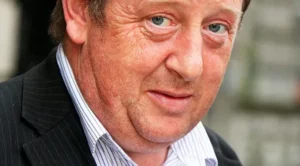 This week, the Leeds City Council heard that the number of people who referred to a gambling support charity organisation for help has declined during the course of the coronavirus pandemic.
This week, the Leeds City Council heard that the number of people who referred to a gambling support charity organisation for help has declined during the course of the coronavirus pandemic.
At their latest meeting, Leeds City Councillors asked what effects has the Covid-19 crisis had on the number of people using the gambling support services provided by GamCare in Leeds communities. Although officers did not provide the exact numbers of service users, they confirmed a decline was registered in the number of people who addressed professionals while looking for help to deal with gambling addiction.
The Councillors Panel asked the entertainment licensing officer of the Council Sue Duckworth whether the coronavirus pandemic had put some additional pressure on gambling addiction treatment and support services. Ms Duckworth shared that she attended a number of meetings of problem gamblers in Leeds and despite the fact she had no specific data, she confirmed the support services had been operational through the Covid-19 lockdown.
The Council’s entertainment licensing officer shared her opinion that the coronavirus pandemic affected the problem gambling support services because it cut short the numbers of face to face meetings. She also said that she was expected to take part in another problem gambling meeting soon, so she would be able to get further data on the matter.
Leeds’ Gambling Addiction Rates Likely Double National Average Ones
 The Leeds City Council meeting was to take into consideration some of the recently proposed updates to gambling legislation, which is why councillors had previously asked local authorities to participate with the provision of feedback and evidence.
The Leeds City Council meeting was to take into consideration some of the recently proposed updates to gambling legislation, which is why councillors had previously asked local authorities to participate with the provision of feedback and evidence.
In a letter sent to city councils in December 2020, the Minister for Sport, Tourism and Heritage Nigel Huddleston said that nearly 50% of British adults gamble every month. He further noted that the Government respects the freedom of adult residents to choose how to spend their free time and money, as well as the tax revenue, jobs and player protection provided by responsible gambling companies.
However, Mr Huddleston said preventing the exploitation of vulnerable individuals, as well as protecting their families and entire communities from potential gambling-related harm and its detrimental impact was an issue of paramount importance.
In May 2020, Matthew Gaskell from the Northern Gambling Services shared that the Government’s public health approach was the most effective way when it came to tracking what the authorities had called “the hidden addiction” and its negative impact on people’s lives. According to the latest reports, about 30,000 people in Leeds suffer from gambling addiction but a Leeds Beckett University’s study says that the problem gambling rates in Leeds are likely two times bigger than the average rate of gambling addiction in the country.
Last year, Mr Gaskell told the Yorkshire Evening Post that problems associated with the coronavirus pandemic measures hide some risks for local people not only because many of them faced stress, financial problems and job uncertainty but also because they were forced to stay at home, and online gambling was available 24/7.
- Author


